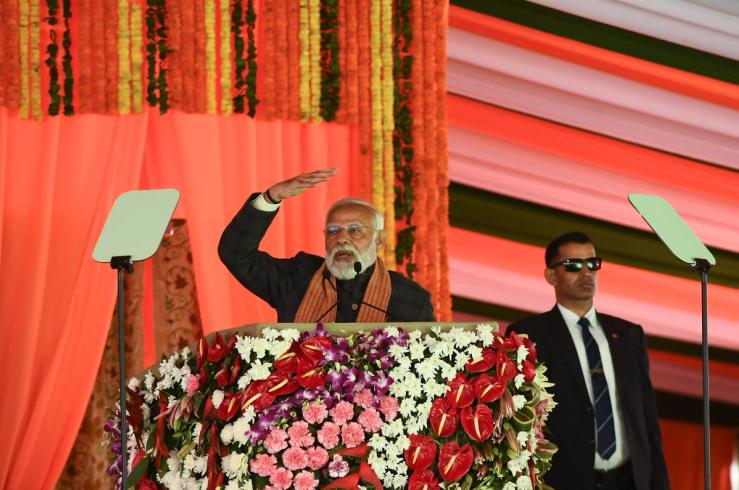The News
Several prominent opposition politicians in India are behind bars weeks before voting begins in national elections, leading opponents to accuse Prime Minister Narendra Modi of trying to suppress criticism to secure reelection.
Arvind Kejriwal, the chief minister of the territory of Delhi, will remain detained until at least next week, a court ruled Thursday, following his arrest in a corruption case stemming from an alcohol sales policy. The U.S. State Department called on India to ensure a “fair, transparent and timely legal process,” prompting New Delhi to criticize the remarks as “unwarranted” and summon a senior U.S. diplomat. Two other opposition politicians, including the former chief minister of the territory of Jharkhand and a state legislator were also arrested recently.
Observers are debating whether the arrests mean that Modi is nervous enough about the elections to clamp down on the opposition, or whether it symbolizes his confidence in willing to jail critics without fear of the consequences.
SIGNALS
Modi’s actions suggest he is panicking, some observers say
For the first time in about a decade, “Modi’s seemingly unassailable image has been dented,” Chennai-based journalist Kavita Chowdhury wrote in The Diplomat, and arresting opposition leaders suggests he is nervous about the elections and is “resorting to every tactic” to guarantee victory. Polls have shown Modi is on track to be reelected, but Chowdhury recalled the 2004 Indian elections, when Modi’s party thought it could coast to victory, only to suffer an embarrassing defeat. “Panic, even desperation is discernible” this year, Chowdhury wrote. “No opposition leader or critic is being spared by the government.”
India PM’s moves reflect confidence, not concern, others argue
Foreign Policy’s Michael Kugelman argued the government’s moves in fact “reflect confidence about the election rather than concern.” Modi is wildly popular, and many voters perceive him as an anti-corruption force, so the grift allegations against his opponents fit that narrative. Despite public pushback, “he knows that his actions won’t hurt him politically,” Kugelman wrote. The targeted politicians also don’t have as much national or regional clout as jailed opposition leaders in other countries, like former Pakistani Prime Minister Imran Khan, who managed to campaign successfully from behind bars.
Modi has amassed money and power
Apart from the leaders’ arrests, the main opposition party’s bank accounts were also recently frozen over a tax dispute. This follows the massive funds Modi’s party amassed through the “electoral bonds” scheme, in which individuals and companies could make unlimited anonymous political donations. Modi “has enlarged the role of money power in the election process,” an advisor to a former Indian president wrote in The Wire, a nonprofit Indian outlet. He compared the current situation to the jailing of opposition leaders under former Prime Minister Indira Gandhi in 1975. But, he noted, Gandhi released them from jail two years later, so they could run unimpeded in the country’s elections at the time.



